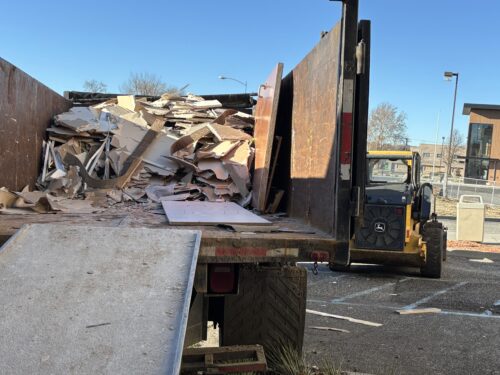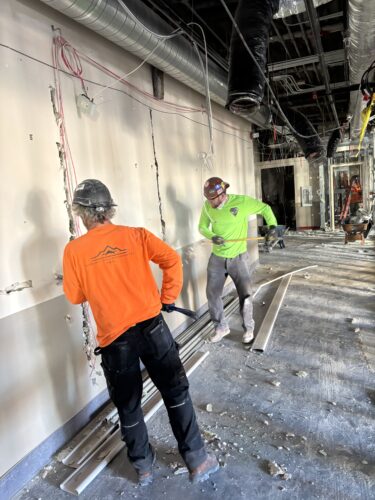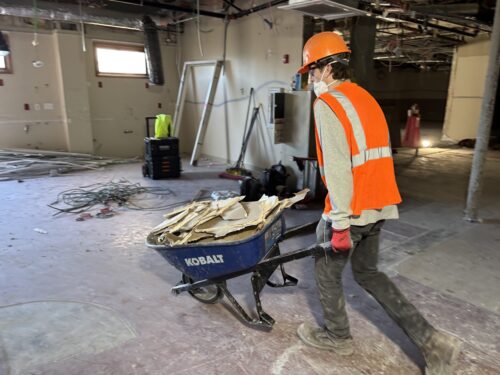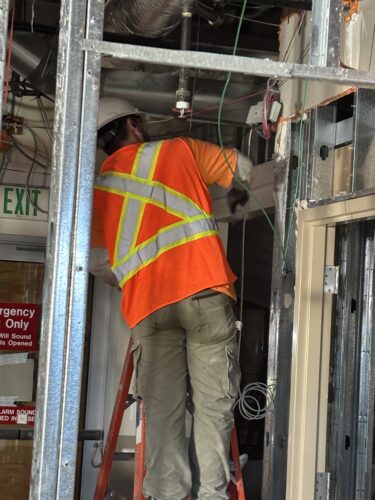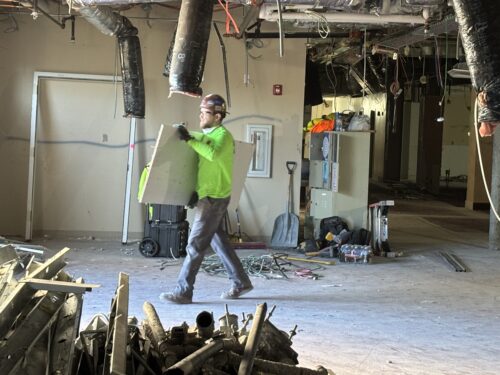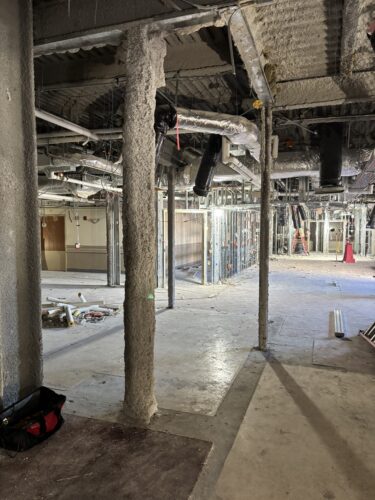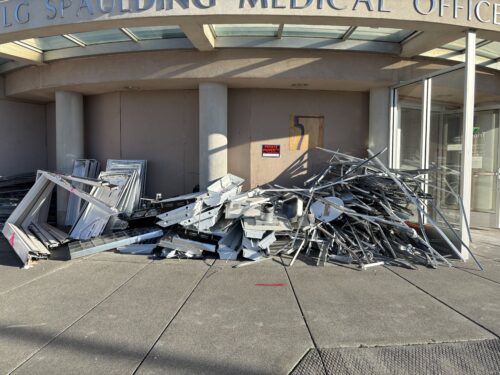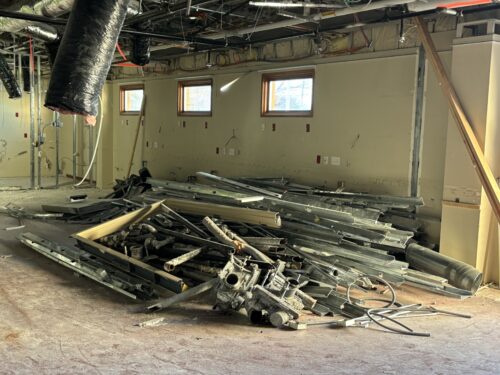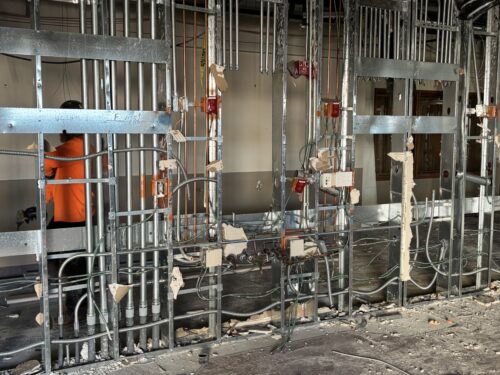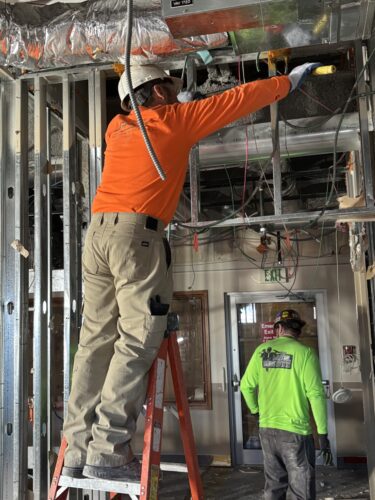What is the Need in Benton and Franklin Counties?
- A resident of Benton or Franklin Counties dies of Substance Use Disorder (SUD -addiction) every 5.2 days.
- Emergency services in Benton County respond to approximately seven crisis calls per day. Approximately 2,555 community members per year need behavioral health services.
- The Tri-Cities is the only metro area in Washington State that has no detoxification or inpatient, residential treatment for addiction.
- The U.S Surgeon General estimates that for every dollar spent in treatment, approximately 7 - 12 dollars can be saved in other social costs.
What is the Columbia Valley Center for Recovery Project?
This is a multi-phase effort begun nearly seven years ago to provide comprehensive care for persons suffering from mental illness and/or SUD. The facility encompasses eight acres and 193,000 square feet.
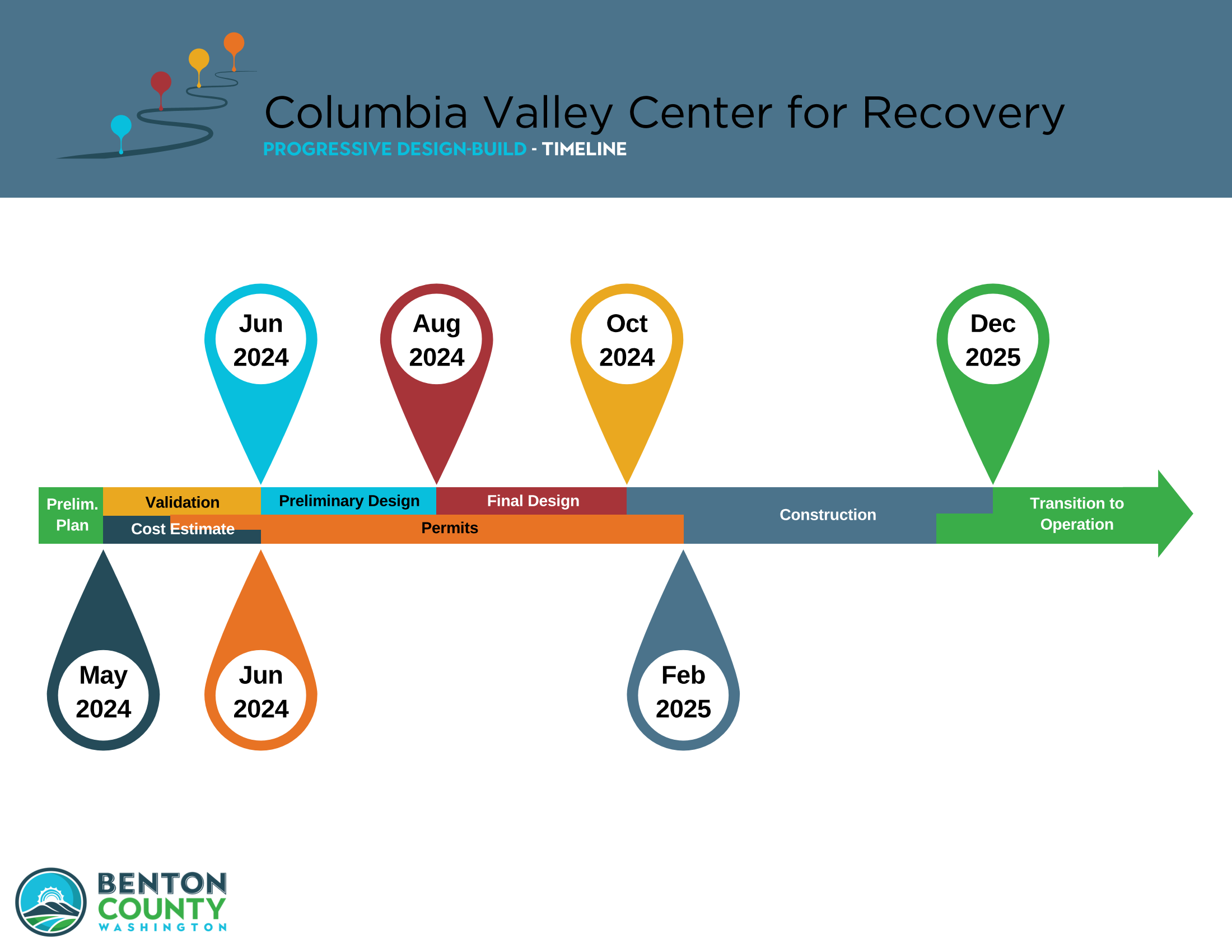
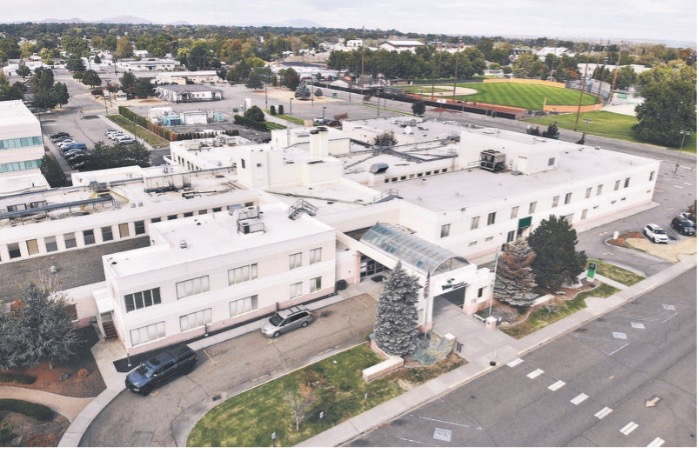
Renovation Has Begun
Funding Thus Far
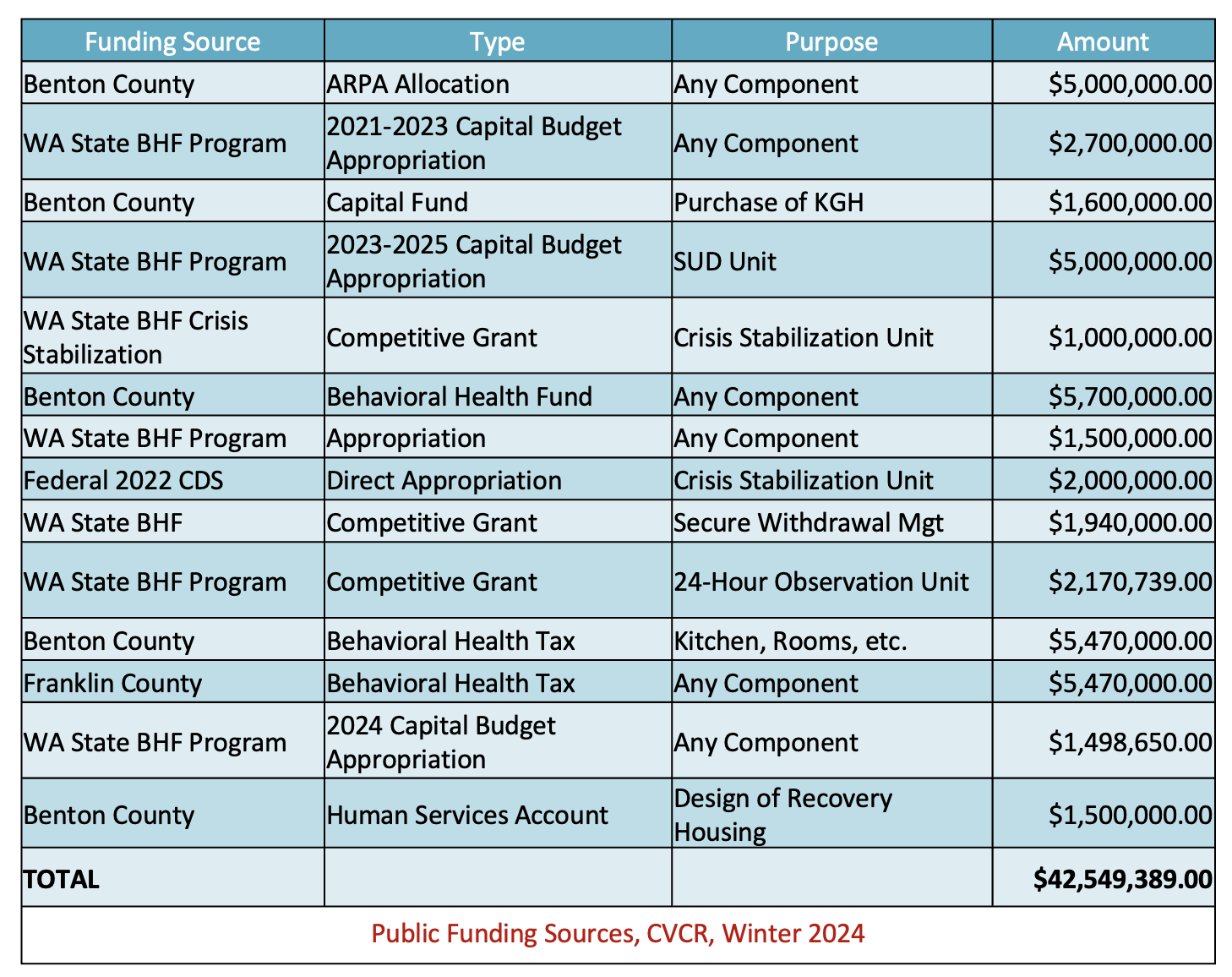
What Services Will be Provided?
In the initial phase, four services will be provided:
- Crisis Relief Services —This service will admit persons in crisis for 23-hour observation, and stabilized in a living room setting, i.e., with reclining chairs in a large open area. Clients will be able to receive short-term treatment and be assessed to determine long-term care plans.
- Crisis Stabilization Unit—This unit will provide treatment for clients whose primary diagnosis is for mental illness. Clients will be assessed, diagnosed, and treated.
- Withdrawal Management—This service will provide treatment for those who are actively under the influence of drugs or alcohol. It will provide Secure Withdrawal Management and Stabilization (SWMS) services . Clients will receive assessment, stabilization, and detoxification services—along with discharge assistance to residential treatment or out-patient treatment as appropriate. Two levels of withdrawal management will be offered: sub-acute detox which includes regular monitoring and client-administered medications, and acute detox which provides medical coverage by nurses with physicians available 24 hours. Both programs will be available on a voluntary or involuntary basis.
- Residential Substance Use Treatment—Length of SUD treatment at the CVCR will depend upon initial and ongoing assessment and progress toward treatment goals.
Future services could include Adolescent and Children’s programs, such as long-term in-patient mental health services, youth crisis center, youth SUD treatment center. Recovery housing and out-patient services are also being considered.
How will the Recovery Center benefit the community?
The Columbia Valley Center for Recovery will generate countless benefits throughout the region. Among these are:
- Provide timely treatment to addicted and/or mentally ill persons to help restore them to full and productive lives
- Facilitate participation of families of persons who choose treatment, thus increasing success rate
- Assist law enforcement and health care providers by offering local services for advanced care and treatment;
- Increase public safety and hygiene
- Reduce repeat visits to emergency departments by persons in crisis, thus reducing ED costs and shortening wait times
- Reduce crime and recidivism, thus lowering local law enforcement costs and workload
- Keep treatment dollars in the Tri-Cities
- Provide substantial return on investment for employers currently sending employees to non-local treatment centers
- Attract more and highly qualifies medical and mental health providers to the region
- Promote neighborhood revitalization and stability
- Attract additional (“business multiplier”) services and jobs to meet the needs of CVCR patients and staff
- Increase tax revenue from salaries and supplies/services purchased locally.
The CVCR will play a vital role in the long-term economic and social wellbeing of our community.
What is the relationship between the Recovery Center and the Benton Franklin Recovery Coalition?
The Benton Franklin Recovery Coalition has been working in partnership with Benton County since 2020, when the Coalition was instrumental in obtaining for the County the initial state appropriation for the Center in the amount of $2.7 million. In 2023, the BFRC formalized their relationship with Benton County by entering into a Memorandum of Understanding. This document provides the framework for collaboration between the two entities. The Coalition advocates for additional federal and state grants for the Columbia Valley Center for Recovery, while raising private funds for projects to enhance the services and environment of the Center.
Endorsements:
Jerome Delvin, Benton County Commissioner District 1: “A Facility such as the Columbia Valley Center for Recovery has been desperately needed in Benton County, and the entire Tri-Cities area, for years; which is why establishing a recovery center has been a priority of mine for quite some time. The CVCR will help our region combat the ever-growing struggle against drug and chemical addiction, as well as mental health issues. Local correctional facilities are not the appropriate locations for these people to land when they are in crisis. CVCR will not only address the current needs our community is facing, but future needs as well. This will be a facility of which the entire region can be proud.”
Eric Eisinger, Benton County Prosecuting Attorney: “ Benton County is an exceptional place to live, but public safety and economic growth depend on our willingness to address our toughest issues. Our community has desperately needed the recovery center. Too many people are in crisis, and some of those people are ready and eager for help. As your county prosecutor, I believe in personal responsibility, accountability, and protecting the community, but justice and mercy walk hand in hand. Providing meaningful help to those who need it is an effective curb to rising crime. More importantly, we have the privilege of restoring sons and daughters to their families and out community at large. This is the great work that the Columbia Valley Center for Recovery will undertake and that I a proud to support.”
April Connors, Representative 8th Legislative District: “The Columbia Valley Center for Recovery stands as a beacon of hope and healing for the Tri-City Region and South Central Washington. This Recovery Center will not only mend lives but fortify the community’s overall wellbeing. As both a State Representative for the 8thDistrict and a member of the community, I wholeheartedly endorse the essential work of the Columbia Valley Center for Recovery. Their commitment to mental and behavioral health is a vital addition to our community.”
Perry Dozier, Senator 16th Legislative District: “Our part of the state is a leader in areas like agriculture, energy, and technology, but access to behavioral health services has been a different story. The Columbia Valley Center for Recovery will bring us even with other communities when it comes to connecting people with resources that can turn lives around. The Center will be the answer to many hopes in our region, and I’m grateful to all those who have had a role in making it a reality.”
Former Franklin County Commissioner Brad Peck: “Societal costs of untreated mental health and substance use disorders affect us all; financially and socially. Programs like the Columbia Valley Center for Recovery reduce costly, unnecessary incarceration and use of limited emergency medical services. The return on investment to taxpayers is excellent; the value to those being treated immeasurable.”
Stephanie Barnard, Representative, 8th Legislative District: “Every single one of us will benefit from the work being done in our community to address substance abuse, addiction, and mental health disorders. Whether it’s you, your relative, or your best friend, the Columbia Valley Center for Recovery will help struggling individuals put their lives back on track and reclaim the joys of a healthy life. I fully support this effort and look forward to a brighter future for so many.”


